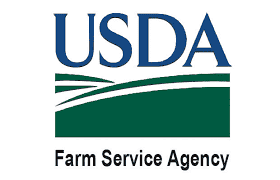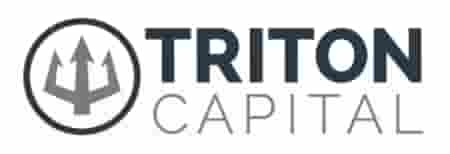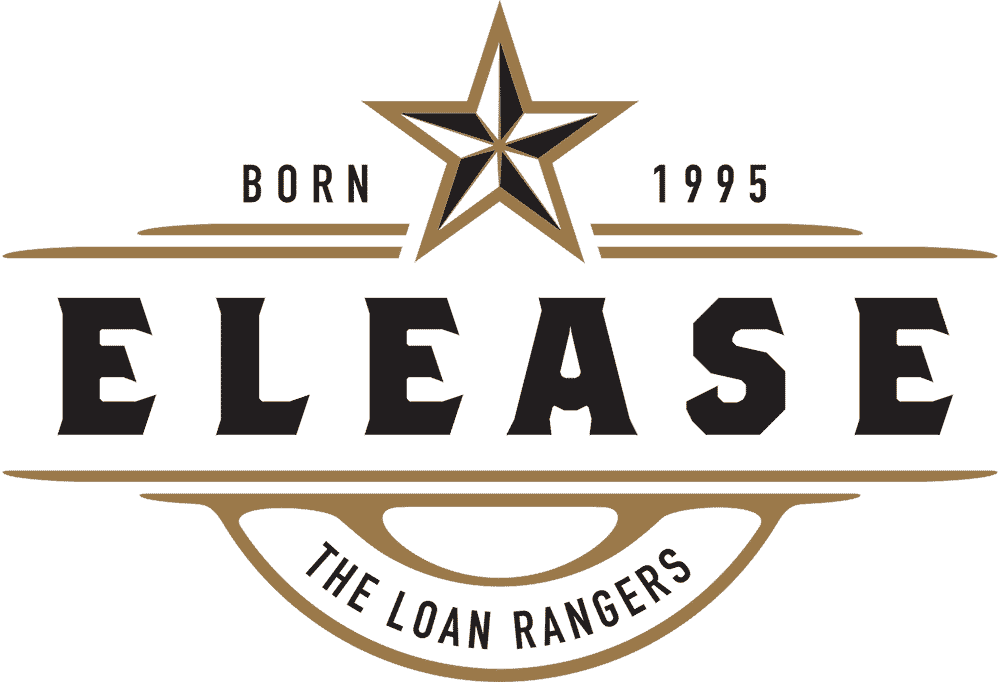| Lender | NerdWallet rating | Best For | Max loan amount | Min. time in business | Min. interest rate | Term length | Learn more |
|---|---|---|---|---|---|---|---|
 | low interest rates | $400,000 | Undisclosed | 5.25% | 12 months to 7 years | ||
| with Fundera by NerdWallet | established farms | $1,000,000 | 24 months | Undisclosed | Undisclosed | with Fundera by NerdWallet | |
| with Fundera by NerdWallet | Read expert review | fast financing | $250,000 | 24 months | 5.99% | 12 months to 5 years | with Fundera by NerdWallet |
| with Fundera by NerdWallet | Read expert review | large loan amounts | $5,000,000 | 24 months | 9.75% | Up to 25 years | with Fundera by NerdWallet |
| with Fundera by NerdWallet | Read expert review | startups | $150,000 | 6 months | Undisclosed | 24 months to 5 years | with Fundera by NerdWallet |
| with Fundera by NerdWallet | bad credit | Undisclosed | 6 months | 7.5% | 24 months to 6 years | with Fundera by NerdWallet | |
 | flexible financing | Undisclosed | Undisclosed | 6.95% | 24 months to 7 years |
farm equipment financing options: More details
Farm Service Agency: Best for low interest rates
These Farm Service Agency loans offer low interest rates and repayment terms up to seven years.

FSA Direct Operating Loan
Pros
- Low interest rates.
- Can be used for a variety of farming purposes.
- No down payment required.
- Borrowers with credit challenges may still qualify.
Cons
- Must be an established farm; borrower must have relevant farming experience.
- Document-heavy application process.
- Slow to fund.
Pros
- Low interest rates.
- Can be used for a variety of farming purposes.
- No down payment required.
- Borrowers with credit challenges may still qualify.
Cons
- Must be an established farm; borrower must have relevant farming experience.
- Document-heavy application process.
- Slow to fund.
U.S. Bank: Best for established farms
U.S. Bank can offer up to 125% in farm equipment financing — including soft costs, such as freight, warranties and taxes. You’ll need at least two years in business to qualify.
U.S. Bank - Equipment financing
with Fundera by NerdWallet
Pros
- Offers up to 25% in additional financing to cover soft costs, such as installation, taxes and freight.
- No down payment or blanket lien required.
- Option to finance multiple pieces of equipment on one contract.
Cons
- Can only apply online for transactions under $250,000.
- Interest rates and qualification requirements not disclosed online.
Pros
- Offers up to 25% in additional financing to cover soft costs, such as installation, taxes and freight.
- No down payment or blanket lien required.
- Option to finance multiple pieces of equipment on one contract.
Cons
- Can only apply online for transactions under $250,000.
- Interest rates and qualification requirements not disclosed online.
with Fundera by NerdWallet
Triton Capital: Best for fast financing
Triton Capital can finance a range of new and used farm equipment — with approvals in as little as two hours and funding as fast as two days.
Triton Capital - Equipment financing
with Fundera by NerdWallet
Pros
- Can fund within one to two business days.
- No prepayment penalty.
- Flexible repayment options: monthly, quarterly, annually or semiannually.
Cons
- Charges an origination fee.
- Requires higher annual revenue than other online lenders.
Pros
- Can fund within one to two business days.
- No prepayment penalty.
- Flexible repayment options: monthly, quarterly, annually or semiannually.
Cons
- Charges an origination fee.
- Requires higher annual revenue than other online lenders.
with Fundera by NerdWallet
U.S. Small Business Administration: Best for large loan amounts
SBA 7(a) loans can provide up to $5 million in financing. These loans have competitive interest rates and long repayment terms.
SBA 7(a) loan
with Fundera by NerdWallet
Pros
- Large borrowing maximums.
- Interest rates are capped.
- Long repayment terms available.
Cons
- Collateral is typically required.
- Longer processing times than online lenders.
Pros
- Large borrowing maximums.
- Interest rates are capped.
- Long repayment terms available.
Cons
- Collateral is typically required.
- Longer processing times than online lenders.
with Fundera by NerdWallet
National Funding: Best for startups
New farmers and agricultural businesses may qualify for equipment financing from National Funding with just six months in operation.
National Funding - Equipment financing
with Fundera by NerdWallet
Pros
- Funding in as little as 24 hours.
- Prepayment discounts available.
- Offers loans to startups and borrowers with bad credit.
- No collateral or down payment required.
Cons
- Charges a factor rate that makes it more difficult to compare costs with other lenders.
- Requires higher annual revenue than other online lenders.
- Can't be used to built business credit.
- Charges an origination fee.s a factor rate that makes it more difficult to compare costs with other lenders.
Pros
- Funding in as little as 24 hours.
- Prepayment discounts available.
- Offers loans to startups and borrowers with bad credit.
- No collateral or down payment required.
Cons
- Charges a factor rate that makes it more difficult to compare costs with other lenders.
- Requires higher annual revenue than other online lenders.
- Can't be used to built business credit.
- Charges an origination fee.s a factor rate that makes it more difficult to compare costs with other lenders.
with Fundera by NerdWallet
eLease: Best for bad credit
You may be able to qualify for a farm equipment loan from eLease with a minimum credit score of 550.
eLease - Equipment financing
with Fundera by NerdWallet
Pros
- No loan or leasing maximums.
- No minimum revenue requirement.
- Startups and low credit scores accepted.
Cons
- Must apply over the phone.
Pros
- No loan or leasing maximums.
- No minimum revenue requirement.
- Startups and low credit scores accepted.
Cons
- Must apply over the phone.
with Fundera by NerdWallet
AgDirect: Best for flexible financing
AgDirect specializes in equipment financing for farms and other agricultural businesses. You can buy or lease farm equipment from a dealership, as well as buy or refinance equipment from an auction or private party.

AgDirect - Farm equipment financing
Pros
- Can finance or lease a wide range of new or used farm equipment.
- Low interest rates.
- Flexible payment schedules available (e.g. annually, semiannually).
- Approvals in as little as three business hours.
Cons
- May require up to 30% down payment.
- Qualification requirements not disclosed online.
Pros
- Can finance or lease a wide range of new or used farm equipment.
- Low interest rates.
- Flexible payment schedules available (e.g. annually, semiannually).
- Approvals in as little as three business hours.
Cons
- May require up to 30% down payment.
- Qualification requirements not disclosed online.
What is a farm equipment loan?
How does farm equipment financing work?
- Repayment terms. One to 10 years, depending on the type of equipment you’re purchasing. Terms are typically based on the projected useful life of the equipment.
- Payment schedule. Monthly basis, although some lenders offer flexible payment schedules (e.g., annually, semi-annually or quarterly).
- Interest rates. 5% to 15% from government, bank and direct lenders. Online lenders may have higher rates. The rate you ultimately receive depends on your qualifications, down payment and equipment value.
Where to get farm equipment financing
Farm Service Agency
- Loan amounts up to $400,000.
- Repayment terms up to seven years.
- Can be used to fund farm operating costs, including equipment and machinery.
- Interest rates set monthly by the FSA.
- Loan amounts up to $50,000.
- Designed for new, small and niche farms (e.g. farmers markets, truck farms, Community Supported Agriculture operations).
- Can be used to purchase equipment.
- Repayment terms and interest rates mirror standard direct operating loans.
- Native American tribal loans.
- Emergency loans.
- Youth loans.
- Repayment terms, interest rates and eligibility vary by program.
- Issued by banks and credit unions.
- FSA guarantees up to 90% of the loan (95% in limited cases).
- Rates and terms negotiated between borrower and lender, subject to FSA maximums.
- Meet agricultural-specific requirements.
- Demonstrate managerial experience.
- Show ability to repay.
- Have an acceptable credit history.
SBA lenders
- Loan amounts up to $5 million.
- Interest rates ranging from 9.75% to 14.75%.
- Repayment terms up to 10 years for equipment.
- SBA guarantees up to 85% for loans up to $150,000 and 75% for loans greater than $150,000.
- Loan amounts up to $5 million (up to $5.5 million for select projects).
- Repayment terms up to 10 years for equipment.
- Require a minimum 15% down payment for farms (considered a “special purpose property”).
- Interest rates tied to five- and 10-year U.S. Treasury notes.
- SBA offers a 100% guarantee on the CDC portion of the loan.
- Must meet job and retention requirements.
- Good credit.
- Multiple years in business.
- Strong finances.
Online equipment lenders
Specialty farm equipment lenders
- Finance or lease new and used equipment.
- Buy or lease equipment from a dealership.
- Buy or refinance equipment from an auction or private party.
How to get a loan for farm equipment
- Evaluate your financing needs. Consider what type of equipment you’re looking to purchase and how much it costs. Some lenders may specialize in heavy equipment financing, for example, while others may not fund used equipment purchases. Understanding your specific needs can help you effectively direct your funding search.
- Check your qualifications. Most lenders will use your personal credit score, time in business and annual revenue to underwrite your loan application. Reviewing these metrics ahead of time will give you a sense of where your business stands before applying.
- Consider your down payment. Some lenders will require you to provide a down payment for your farm equipment financing — potentially up to 30%. If you can’t afford a down payment, you’ll want to look for lenders that offer zero-down financing. Alternatively, providing a down payment (especially when it’s not required) may help newer businesses or borrowers with bad credit qualify.
- Get an equipment quote. Most lenders will want you to provide an equipment quote as part of your loan application. You should compare prices for the equipment you want to purchase to determine where you can get the best deal.
- Compare farm equipment financing options. If you can qualify, opting for an FSA, SBA or bank loan may offer you the most competitive interest rates and terms. Online lenders may be a suitable choice, however, if you need fast funding or can’t qualify for more traditional options. In any case, you should research and compare multiple lenders to find the right fit for your needs.
- Organize and prepare for your application. Most lenders will require you to provide basic information about you and your business, business financial documents and tax returns, among other paperwork. It can be useful to pull this information ahead of time to expedite the application process. You should also read the application instructions carefully — answering questions as intended and providing accurate and up-to-date documentation will help you get approved faster.
Frequently asked questions
- Term loans.
- Lines of credit.
- You are legally liable for the debt.
- You and the lender intend that the debt be repaid.
- You and the lender have a true debtor-creditor relationship.
How Fundera by NerdWallet works
Fill out one simple application
Answer a 3-minute questionnaire about your business to get personalized lending options. It’s free and won’t impact your credit score.
See your business loan options
Compare interest rates and repayment terms to choose the best product for your needs.
Get your loan
If the lender approves you, you’ll sign closing documents in order to receive funds. Some lenders can approve and fund loans within one business day.







